Animal health
Health Benefits Of Owning A Pet
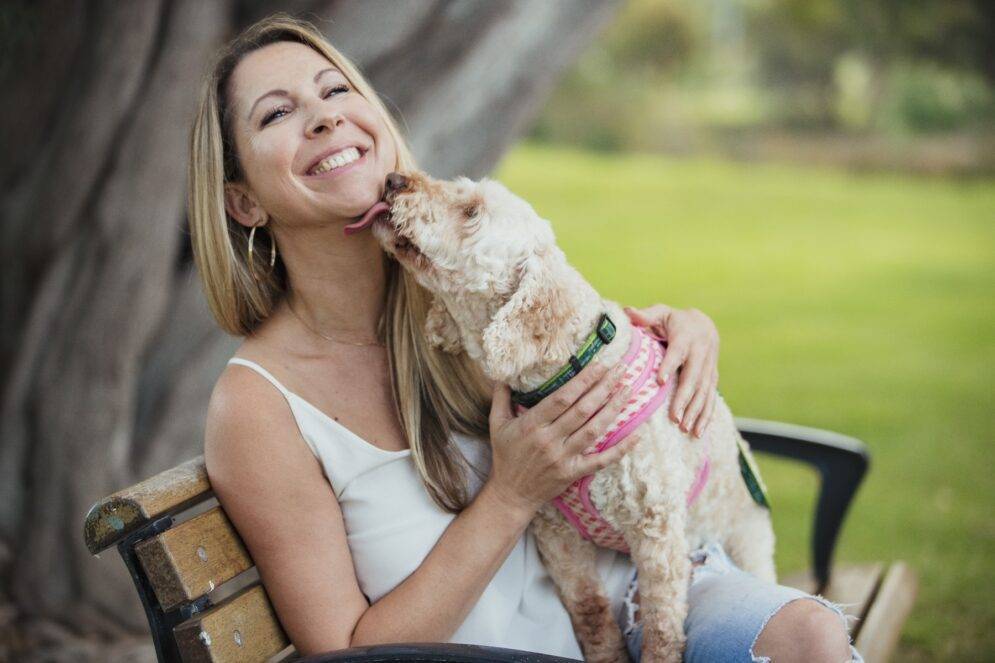
Last Updated on October 10, 2023 by Nurse Vicky
The Health Benefits Of Owning A Pet
In a world filled with hustle and bustle, where stress often seems to be a constant companion, there’s a furry, feathery, or scaly friend waiting to lend a helping paw, wing, or scale.
We’re talking about the incredible health benefits of owning a pet. Yes, you heard that right! Beyond the adorable cuddles and endless loyalty, pets can bring a world of positive changes to your physical, mental, and emotional well-being.
So, let’s dive into the enchanting world of pet ownership and discover why it’s not just about love and companionship, but also about a healthier you.
A Stress Buster Extraordinaire
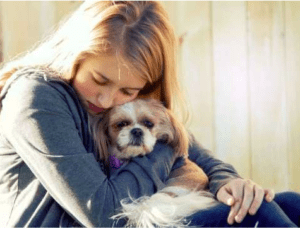
Stress is a relentless adversary in our modern lives, lurking around every corner. But here’s where your four-legged pal enters the scene as your stress-fighting sidekick. Research has shown that spending quality time with your pet can trigger a release of oxytocin, a hormone that reduces stress and anxiety.
Those moments when your dog greets you at the door with a wagging tail or your cat curls up on your lap—they are more than just heartwarming; they’re therapeutic.
Boosting Physical Activity

Exercise is the cornerstone of good health, and pets are excellent motivators for staying active. Dogs, especially, are ever-eager workout partners, pulling you out for daily walks or playful games of fetch.
Even if you’re a cat person, engaging in interactive play with your feline friend can keep you on your toes. Regular physical activity not only helps maintain a healthy weight but also lowers the risk of heart disease and strengthens your bones and muscles.
Unconditional Love and Emotional Well-being
In the whirlwind of life, it’s easy to feel isolated or stressed. That’s where your pet’s unconditional love comes into play. Their affectionate presence can significantly reduce feelings of loneliness and depression. Just stroking your pet’s fur can trigger the release of feel-good chemicals like serotonin and dopamine, making you feel happier and more content.
Allergies? Think Again!
Contrary to common belief, owning a pet may actually reduce the risk of allergies and asthma in children. Exposure to pet dander and allergens from an early age can help build immunity, making kids less susceptible to these health issues. It’s like your pet is a natural shield, protecting your little ones from allergies.
Socialization and Training
 Socialization is an essential aspect of human life, and owning a pet can be a wonderful catalyst for it. Taking your dog to the park or on walks often leads to encounters with other pet owners. These interactions can foster new friendships and help you build a supportive social network.
Socialization is an essential aspect of human life, and owning a pet can be a wonderful catalyst for it. Taking your dog to the park or on walks often leads to encounters with other pet owners. These interactions can foster new friendships and help you build a supportive social network.
Moreover, training your pet is a rewarding experience that enhances your patience, communication skills, and problem-solving abilities. Teaching them commands, tricks, or even basic obedience can be a fulfilling journey for both you and your pet.
Frequently Asked Questions
1. Do all types of pets provide the same health benefits?
Not necessarily. Different pets offer varying levels of companionship and physical activity. Dogs are known for their active nature, while cats provide more comfort and emotional support. Consider your lifestyle and preferences when choosing a pet.
2. Can owning a pet help with serious mental health conditions like depression or anxiety?
While pets can provide emotional support, they are not a substitute for professional mental health treatment. However, they can be a valuable part of a holistic approach to managing these conditions.
3. How much exercise does my dog need to keep both of us healthy?
The exercise needs of dogs vary based on their breed and age. As a general guideline, most dogs benefit from at least 30 minutes to an hour of physical activity every day. Consult with your veterinarian to determine the ideal routine for your furry friend.
4. Are there any downsides to owning a pet for health reasons?
While the benefits of pet ownership are significant, it’s essential to consider factors like allergies, time commitment, and financial responsibility. Ensure you’re ready for the responsibilities that come with pet ownership before bringing one into your home.
5. Can pets help with children’s development?
Yes, pets can contribute positively to children’s social and emotional development. They teach responsibility, and empathy, and provide companionship. However, supervision and guidance are essential to ensure safe interactions between pets and children.
6. Are there any specific pet breeds that are better for people with allergies?
Some hypoallergenic breeds, like poodles and bichon frises, produce fewer allergens and may be more suitable for individuals with allergies. However, it’s crucial to spend time with the specific breed to assess your allergic reactions before adopting.
7. Can pets sense when their owners are not feeling well?
Many pet owners report that their pets seem to sense when they are unwell or upset and offer comfort and companionship. While there is no scientific consensus on this, the emotional bond between pets and their owners is undeniably strong.
Remember, the decision to own a pet should align with your lifestyle and preferences. While they offer numerous benefits, responsible pet ownership requires commitment and care.
Conclusion
In a nutshell, the health benefits of owning a pet are truly remarkable. They offer companionship, stress relief, and physical activity, contributing to a healthier and happier life. So, if you’ve been contemplating bringing a pet into your life, consider all the incredible advantages beyond the joy they bring. Your pet might just be the prescription your well-being needs.
Animal health
What To Do If Your Dog Has diarrhea: The Complete Guide
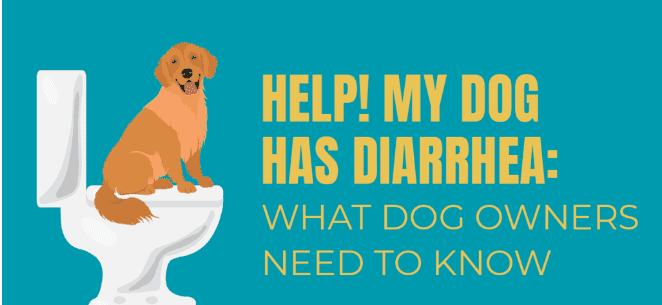
Last Updated on April 23, 2024 by Nurse Vicky
What To Do If Your Dog Has Diarrhea: The Complete Guide
If you’re like most dog owners, you’re probably wondering what to do if your dog has diarrhea. If your dog is vomiting and has diarrhea, the best course of action is to take them to the veterinarian. However, if your dog is just having regular diarrhea, there are some things you can do at home to help relieve its symptoms.
In this guide, we’ll cover the most common causes of diarrhea in dogs, as well as the best ways to treat them. We’ll also provide tips on preventing diarrhea in the future, based on your dog’s individual needs. So keep reading to learn everything you need to know about diarrhea in dogs!
What are the most common causes of diarrhea in dogs?
If your dog is having diarrhea, there’s probably a good reason. It can be caused by food allergies, parasites, viral infections, and stomach viruses, to name a few. In this article, we’ll outline the most common causes of diarrhea in dogs and what you can do to help. First and foremost, make sure you check for food allergies.
If your dog has diarrhea and their food isn’t the root of the problem, then you’ll need to try changing their diet to see if that fixes the issue. If that doesn’t work, then it’s time to take your dog to the vet for a check-up.
They may also need to check their water supply to make sure it’s clean enough for them to drink. If all of these measures fail to cure your dog’s diarrhea, then it’s time to consider other possible causes.
What to do if your dog has diarrhea and is vomiting?
If your dog has diarrhea and is vomiting, take them to the vet as soon as possible. In most cases, there’s no need to treat your dog at home – they’ll just feel a little better after going to the vet.
Keep an eye on their water intake and make sure that they’re not eating anything that isn’t permissible for them (i.e., vegetables). If you think something might be wrong with your dog’s diet, speak with a veterinarian about what else may be causing the problem. Now go have a great day!
How to Treat Dog Diarrhea Correctly
Dogs are man’s best friend, and diarrhea is one of the most common vet bills. diarrhea can be caused by a variety of things, so it’s important to rule out any potential causes. If you notice your dog has diarrhea, the first step is to take her to the vet for a check-up. If the cause of diarrhea can’t be determined, then antibiotics may be prescribed in order to treat the disease.
Always make sure your dog is hydrated and eats a balanced diet, as diarrhea can be caused by dietary indiscretion or dehydration. Prevention is always better than cure, so be sure to keep your dog healthy by feeding them a balanced diet and providing plenty of fresh water.
What To Do If Your Dog Is Having Severe Diarrhea
If your dog is having diarrhea, it’s important to act fast.
Follow these simple steps to help stop diarrhea and make your pet feel better:
1. Give your dog plenty of fresh water to drink.
2. In case of vomiting, make sure your dog swallows plenty of fluids.
3. Make sure your dog has a bland diet – no meat, bones, eggs, or dairy products.
4. If diarrhea persists and your dog is not feeling well, take him to a vet for more advice or treatment options.
Tips on Preventing Dog Diarrhea in the Future
If you’re like most pet owners, you know that diarrhea is one of the most common problems that your dog will experience. It’s important to keep your dog safe and healthy by following a few simple tips.
When your dog plays in water or soil that’s contaminated with feces, he ingests the bacteria which causes diarrhea. To prevent this from happening in the future, always keep your dog on a leash when outside and supervise him closely when inside.
If diarrhea does occur, give your dog plenty of fluids and dry foods to restore his health quickly! In addition to these tips, make sure to read up on dog diarrhea to learn more about its causes and prevention. Doing so will help you keep your dog parasite-free and diarrhea-free in the future!
Frequently Asked Questions
What are the most common causes of diarrhea in dogs?
The most common cause of diarrhea in dogs is food allergies or sensitivities. Other causes include parasites (including Giardia lamblia and Cryptosporidium), gastric ulcers, viruses (especially distemper), and bacteria such as E.
coli or Salmonella. To prevent diarrhea from occurring in your dog, always feed him a well-balanced diet that includes fresh water and plenty of exercise. If you notice that your dog is having trouble digesting his food – especially if he’s vomiting after eating – then stop feeding him for 24 hours and see a vet.
How can I tell if my dog has diarrhea?
If you suspect that your dog has diarrhea, you should take them to a vet as soon as possible. diarrhea is a very serious condition and if left untreated, can lead to dehydration, vomiting, and even death. In addition to stool sample analysis, your vet may also perform x-rays or blood tests to determine the cause of diarrhea.
What should I do if my dog has diarrhea?
If you notice your dog has diarrhea, the first thing to do is get them to a vet. Dogs who have diarrhea are more likely to catch other diseases like parvovirus and gastroenteritis. Powdered milk or formula can help soothe their stomachs and generally make them feel better. Add garlic, ginger, turmeric, and probiotics (such as VSL#3) to their food in order for them to fight off infection effectively.
Is it safe to give my dog medication for diarrhea?
Giving your dog medication for diarrhea is usually safe. Antibiotics are the best type of medicine to take if your dog has diarrhea as they kill the bacteria that cause the problem.
If you do decide to give your dog antibiotics, make sure you follow all dosage instructions precisely and consult with a vet beforehand.
How can I treat my dog’s diarrhea appropriately?
There are a few things that you can do to treat your dog’s diarrhea properly. First of all, make sure that he is drinking plenty of fluids. If he is not drinking enough, then you may need to give him a bland diet or antibiotics. If his diet isn’t working, you may want to try garlic oil or apple cider vinegar. Just be sure to consult with a vet before doing anything if your dog is vomiting or has bloody diarrhea.
Conclusion
If you’re like most pet owners, you’re probably concerned about your dog’s diarrhea. But don’t worry, we have everything you need to know in this comprehensive guide. From the most common causes of diarrhea to the best ways to treat it, this article has it all. Be sure to share this article with your friends and family who have dogs, as they will appreciate your help in preventing diarrhea in the future.
Animal health
What can you do if your dog won’t eat?
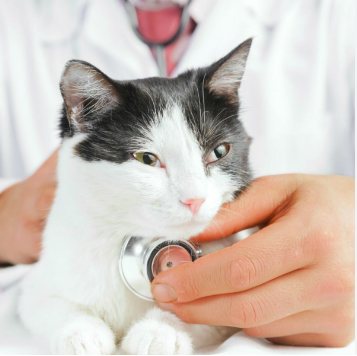
Last Updated on June 15, 2024 by Nurse Vicky
What can you do if your dog won’t eat?
If you’ve been struggling to get your dog to eat, you’re not alone. In fact, according to research, nearly one-third of dog owners have had to resort to force-feeding their dogs to get them to eat. But don’t worry – there are plenty of ways to fix the problem and get your dog eating properly again.
In this blog post, we’ll outline the different reasons why dogs might refuse to eat and give you some tips on how to help them overcome their food aversion. Finally, if things still haven’t worked after following all of these suggestions, please consult a vet. They’ll be able to provide you with the help your dog needs to start eating normally again!
Check if your dog is sick
If your dog isn’t eating, the first thing you should do is take them to the veterinarian for a check-up. There could be many reasons why they aren’t eating, from stomach flu to something more serious like food allergies or parasites.
After your dog has been checked out and found not to have any health issues, try changing their diet a little bit at a time until they start eating again. Sometimes correcting feeding behavior can be as simple as providing positive reinforcement such as treats! If your dog is refusing to eat, and food is not the only issue, take them to the veterinarian for a check-up.
Feed your dog smaller meals more often
If your dog won’t eat, there’s probably a good reason. Maybe they’re not hungry, maybe they’re sick, or maybe they’re just stressed. Regardless of the reason, feeding your dog smaller meals more often is the best solution. This will help them get the food they need without overeating or getting sick.
If your dog still won’t eat, try different food recipes, bath them, or play with them to get their appetite going. Just keep trying different strategies until your dog finally starts eating.
Get your dog used to the new food slowly
If you’re trying to get your dog to eat their new food, it can be a bit of a challenge. Start by gradually increasing the new food portion over a few days. If your dog shows any signs of resistance, back off for a day and try again later. Offer the food in different locations – on the floor, near their toys, or inside their kennel – to see where they show interest most. Last but not least, be patient. Your dog may not take to the new food right away, but with a bit of patience and a lot of love, they’ll eventually get used to it.
Consult a vet
If your dog won’t eat, it might be time to consult a veterinarian. There could be many reasons your dog is refusing food, from illness to fear. A vet can rule out any serious issues and give you some tips on how to get your dog to start eating. If your dog won’t eat, it’s important to consult a vet as soon as possible. Some of the most common causes of refusing food are sickness and anxiety.
A vet will be able to determine if your dog is sick or has an issue with his appetite, and they can prescribe the appropriate treatment plan. Sometimes dietary changes are necessary to get a pet eating again – so don’t hesitate to call a vet!
Reasons why dogs refuse to eat
It can be frustrating when your dog won’t eat their food. There are many possible reasons why this might be the case, from being sick to having an upset stomach. If all of these measures fail, you may need to consider hiring a professional dog trainer. A professional will help your dog learn to eat food for nutrition, and not for pleasure.
They may also use deterrents or rewards to encourage your dog to eat. If all of these methods fail, professional dog training may be the best option for you and your dog.
Tips to help your dog eat
It can be frustrating when your dog won’t eat, but there are some simple things you can do to help him. First and foremost, make sure you are providing the right food – high-quality kibble and meat is ideal. Training your dog with positive reinforcement will help him learn to eat. If all else fails, try some of these tips: Freeze his food for a few hours – this will make it more appealing to him – Change his environment – move the bowl closer to where he eats or put his dish in another part of the house
Restricting feeding times for dogs
If your dog won’t eat, one of the first things you should do is restrict feeding times. This will make them hungry and more likely to eat the food that you offer them. You can also try tempting him with his favorite treats before feeding time instead of during it. If that doesn’t work, never force-feed your dog – this could cause stomach upset and problems down the line.
Instead, try to get him to eat by gradually increasing the number of feedings throughout the day. Keep in mind that a dog’s appetite varies from dog to dog, so it may take some trial and error to find the feeding schedule that works best for him.
Frequently Asked Questions
Why is my dog refusing to eat?
One common reason why dogs refuse to eat is because of anxiety or boredom. Try changing up his food bowl, providing more toys and exercises for him, and spending time with him when he’s eating. If your dog still refuses to eat, you may need to take him to the vet for a checkup.
How can I tempt my dog with food if he or she won’t eat from me?
One of the best ways to get your dog to start eating from you is to do it gradually. Start by getting him or her used to eat from a distance. This can be done by hiding food around the house and waiting for your dog to find it. Once your dog is used to this new routine, you can reward them with food. water, and playtime.
What type of treats should I give my dog to get them to eat from me?
There are many different types of treats that you can give your dog to get them to eat you. Some of the most popular options include wet and dry food, healthy snacks like carrots or applesauce, and Kong toys. You should experiment with different flavors and textures to see what your dog is the most likely to voluntarily eat from you. For example, if your dog usually only eats kibble, try giving them food that’s wet or crunchy instead. You can also mix up the flavors to keep their taste buds engaged.
Can you recommend any other strategies for getting my dog to open up and eat from me?
One of the best ways to get your dog to eat from you is to get used to the idea. You can start doing this by holding food in your hands while you’re walking around and feeding it to your dog when it’s hungry. Additionally, you can try tempting your dog with a tasty treat or playing with it while food is being served. If your dog still won’t eat from you, there are other ways to feed it like putting its food in a Kong toy and giving it time to lick it clean.
Conclusion
If your dog won’t eat his food, there are a few things you can do to help him get used to the new food. First, check to see if your dog is sick and needs to be treated. If your dog is healthy, feed him smaller meals more often to avoid overloading his stomach. Additionally, gradually introduce the new food to your dog over several days to avoid any potential problems. If your dog still won’t eat, consult a vet who can help you diagnose the problem and provide the best solution. Thanks for reading!
Animal health
Why Is My Cat Not Pooping? The Most Common Causes And Solutions
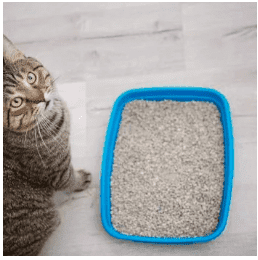
Last Updated on May 15, 2024 by Nurse Vicky
Why Is My Cat Not Pooping? The Most Common Causes And Solutions
As a cat owner, it can be concerning when your furry friend is not pooping regularly. A healthy bowel movement is essential for your cat’s overall well-being.
In this comprehensive guide, we will delve into the most common causes of constipation in cats and provide effective solutions to help your feline friend find relief.
Whether you’re a new cat owner or have been caring for cats for years, this article will equip you with the knowledge you need to understand and address your cat’s constipation issues.
Understanding Cat Constipation
Cat constipation occurs when your cat has difficulty passing stools. It can be a result of various factors, including diet, hydration, exercise, and underlying health conditions.
Constipation is typically characterized by infrequent or absent bowel movements, straining in the litter box, hard and dry stools, and discomfort. If left untreated, it can lead to more severe complications.
Common Causes of Cat Constipation
Inadequate Fiber Intake: Cats require a balanced diet that includes sufficient fiber to maintain a healthy digestive system. Low-fiber diets can contribute to constipation as they lack the bulk necessary for regular bowel movements.
Dehydration: Insufficient water intake can cause the stools to become hard and difficult to pass. Cats that primarily consume dry food may not be getting enough moisture, leading to dehydration and constipation.
Lack of Exercise: Physical activity plays a crucial role in regulating your cat’s digestive system. Cats that lead sedentary lifestyles are more prone to constipation. Encouraging playtime and providing opportunities for exercise can help prevent constipation.
Hairballs: Cats groom themselves regularly, resulting in the ingestion of loose fur. If the fur accumulates in the digestive tract instead of passing through, it can lead to constipation and the formation of hairballs.
Obstruction: Foreign objects, such as swallowed hair ties or bones, can obstruct the intestinal passage and cause constipation. In some cases, tumors or masses may also obstruct the colon, leading to constipation.
Solutions for Cat Constipation
Dietary Changes: Ensure your cat’s diet includes an appropriate amount of fiber. Consult with your veterinarian to determine the right type of food for your cat’s specific needs. Adding canned pumpkin or fiber supplements to their meals can also aid in softening the stools.
Increased Hydration: Encourage your cat to drink more water by providing fresh water sources throughout the house. Consider incorporating wet food into their diet, as it contains higher moisture content compared to dry food.
Interactive toys, climbing structures, and scratching posts can encourage movement and stimulate their digestive system.
Hairball Prevention: Regular brushing helps minimize the amount of loose fur your cat ingests while grooming. This reduces the chances of hairball formation and subsequent constipation.
Laxatives and Stool Softeners: In severe cases, your veterinarian may recommend laxatives or stool softeners to alleviate constipation. However, these should only be used under professional guidance and supervision.
When to Seek Veterinary Assistance
While mild cases of constipation can often be resolved with dietary and lifestyle changes, there are instances when veterinary intervention is necessary. It is important to be aware of the following signs that indicate your cat requires medical attention:
Persistent Constipation: If your cat’s constipation persists despite your efforts, it may indicate an underlying health issue that requires veterinary evaluation.
Straining and Discomfort: Excessive straining in the litter box, vocalization of pain or discomfort, or signs of distress while trying to defecate are red flags that should not be ignored. These symptoms may indicate a blockage or a more serious condition.
Loss of Appetite: If your cat’s constipation is accompanied by a loss of appetite, it could be a sign of an underlying health issue. Cats that refuse to eat for more than 24 hours should be evaluated by a veterinarian.
Vomiting: Persistent vomiting alongside constipation warrants immediate veterinary attention. It may indicate an obstruction in the digestive tract or other complications.
Abdominal Distention: If your cat’s abdomen appears swollen or distended, it could be a sign of a severe blockage or an underlying medical condition. Seek veterinary assistance promptly.
A Guide to the Different Types of Cat Pooping

It can be frustrating when your cat doesn’t seem to be pooping normally. Sometimes, there are no obvious signs, and it can be difficult to determine the cause.
However, with a little bit of research and understanding, you can get to the bottom of the problem. Here are the four most common causes of not pooping in cats: eating something unusual, having allergies, being pregnant, or having intestinal blockages or tumors.
If you suspect that your cat has one of these issues, it’s important to take them to the veterinarian for an examination and diagnosis.
However, don’t worry – with a little effort, you can diagnose the problem and get your cat back on track to a healthy and regular pooping routine. Thanks for reading!
The Most Common Causes Why Cats Don’t Poop
It can be frustrating when your cat stops using the litter box, especially when there’s no visible mess or clues as to why. Thankfully, there are a few common reasons cats stop using their litter box, and most can be solved with a little detective work.
If you notice one of the following issues, it may be time to take your cat to the vet for a checkup:
- There’s a visible mess in or around the cat’s regular hiding places.
- Stress or anxiety (may result from changes in family dynamics, moves, etc.)
- The litter seems to be getting tracked all over the house.
- Common reasons cats stop using their litter box include: – Illness (feline panleukopenia, URI)
- Treatment of these causes will usually solve the problem and get your kitty back on track!
The Most Common Solutions to Why Your Cat Isn’t Pooping

If you’re ever stumped as to why your cat isn’t pooping, don’t worry there are usually solutions. One of the most common causes is a blockage or infection in the intestine, which can be treated with a vet visit and medication.
If your cat isn’t eating enough, its intestines will be left without food and waste will accumulate, leading to a lack of pooping. If your cat isn’t drinking enough water, its intestines will be left without food and waste will accumulate.
In short, if your cat isn’t acting their usual self and you’re not sure why, don’t hesitate to take them to the vet for an examination and possible treatment. Thanks for reading!
Frequently Asked Questions
Can stress cause constipation in cats?
Yes, stress can disrupt a cat’s digestive system and contribute to constipation. Environmental changes, new additions to the household, or other stressful events can impact their bowel movements.
Are there any home remedies for cat constipation?
While mild cases of constipation can sometimes be relieved with home remedies like adding fiber to their diet or using hairball lubricants, it is always best to consult with a veterinarian for proper guidance.
Can a lack of grooming lead to constipation?
Yes, cats that neglect grooming may accumulate more loose fur, increasing the risk of hairball formation and subsequent constipation. Regular grooming is essential for their overall health.
Is it normal for a cat to skip a day or two without pooping?
While occasional skipped bowel movements may not be a cause for concern, a healthy cat should typically have regular daily bowel movements. If the pattern changes or constipation persists, it’s advisable to seek veterinary advice.
Can certain medications cause constipation in cats?
Yes, some medications, such as certain painkillers or antihistamines, can contribute to constipation. If your cat experiences constipation after starting a new medication, consult your veterinarian for possible alternatives.
Are there specific cat breeds more prone to constipation?
While constipation can affect any cat, long-haired breeds, such as Persians or Maine Coons, may be more susceptible due to increased hair ingestion during grooming.
Can obesity contribute to constipation in cats?
Yes, obesity can be a risk factor for constipation. Cats that are overweight or obese may have reduced mobility and exercise, which can impact their digestive system.
Should I give my cat laxatives without veterinary guidance?
It is not recommended to give laxatives to your cat without veterinary guidance. The type and dosage of laxatives should be determined by a professional to ensure proper and safe treatment.
Can a change in diet cause temporary constipation?
Yes, a sudden change in diet can sometimes disrupt a cat’s digestive you’ve been dealing with a cat that’s not pooping, you’re not alone. According to PetMD, up to 50% of cats may not poop regularly.
This can be frustrating for both you and your cat, as it can lead to all sorts of problems – including digestive issues, health problems, and behavioral problems.
In this blog post, we’ll introduce you to the different types of cat pooping, the most common causes, and the most common solutions. We’ll also give you a guide to diagnosis and treatment so that you and your cat can start pooping regularly again!
What are the most common reasons why my cat is not defecating?
There are a few reasons why your cat may not be defecating regularly.
Problems with the urinary tract:
This can include cystitis (a condition where the bladder becomes inflamed), urethral obstruction (where the urinary tract becomes narrowed or obstructed), or a combination of both.
2. Inability to move the bowels: This can be caused by many things such as eating grass, clay, seeds, etc., which can block your cat’s intestines or rectum.
3. Surgery is often necessary to unblock the obstruction: If surgery is required, make sure to provide antibiotics before and after surgery to ensure a good recovery rate for both you and your cat!
Can antibiotics cause problems with pooping in cats?
Antibiotics can cause problems with pooping in cats in a variety of ways. If your cat is taking antibiotics regularly, it may develop kidney damage or even become deaf. Additionally, antibiotics can cause diarrhea and constipation.
You should consult with your veterinarian to find out the best way to treat your cat’s illness and avoid any potential side effects of pooping.
Is there anything I can do to encourage my cat to poop more?
There are usually some underlying reasons why cats stop pooping. For example, if they’re on a diet and their food isn’t providing enough fiber or suitable nutrients then they may start to ignore their litter box.
Some of the most common reasons for a cat not to poop include diet issues, elimination problems, health problems, and emotional stress. To get your cat back on track, you can try some of these solutions:
have a checkup with your veterinarian to rule out any underlying health problems feed them high-quality dry food only instead of canned or wet food give them ginger or turmeric treats, which are known to promote digestion and encourage regularity in pets’ pooping habits.
How can I determine if my cat has a food allergy that is preventing him from pooping properly?
If your cat is not pooping properly, you should first take him to the vet. After testing and ruling out any other issues, they may be able to determine that your cat has a food allergy. If this is the case, a food allergy can prevent them from pooping properly.
There are many causes of a cat not pooping including blockages, constipation, excess fluid buildup, and inflammation due to disease or cancer. However, some of the most common causes of a cat not pooping include food allergies.
If your cat has food allergies, one of the first steps you should take is to try adjusting its diet. You can add fiber supplements or probiotics into their diet to help with the problem.
What are some of the rarer causes of not being able to get my cat’s bowels moving?
There are a few reasons why cats may not be able to move their bowels properly. Some of the most common causes include diet, lack of exercise, parasites, and environmental factors.
For cats who are having difficulty with bowel movements, the first step would typically be to add more fiber to their diet or take
Why Is My Cat Not Pooping
Supplements such as probiotics.
If your cat is still not getting better after following these steps, it may be necessary to get them checked out by a veterinarian. In some cases, intestinal blockages or worms may be the cause of constipation. If you’re unsure what’s causing your cat’s constipation, it might be best to consult with a veterinarian. Thank you for reading!
Conclusion
Understanding why your cat is not pooping is crucial for providing appropriate care and finding solutions. By addressing common causes such as inadequate fiber intake, dehydration, lack of exercise, hairballs, and obstructions, you can help your cat find relief from constipation.
Remember to make dietary adjustments, promote hydration, encourage exercise, prevent hairballs, and seek veterinary assistance when necessary. With your attentive care and proactive approach, you can support your cat’s digestive health and ensure its overall well-being.
-

 Trending Stories1 year ago
Trending Stories1 year agoCDC: 1 in 4 Americans Still COVID-Free by End of 2022
-

 Health5 years ago
Health5 years agoMeghan Trainor Shares Motivational New Song ‘Blink’
-

 Health2 years ago
Health2 years agoHow Long Does Monkey Pox Last Before It Surfaces in the Body?
-

 Health2 years ago
Health2 years agoWhat Causes Swollen Body? Understanding Edema and its Triggers
-

 Health3 years ago
Health3 years agoNutrition and the Importance of a Fitness Program – 3 Things to Know
-

 Health3 years ago
Health3 years ago5 Weird Reasons Why Pimples Disappear After Marriage
-

 Health3 months ago
Health3 months agoHow Do Pawpaw Seeds Support Cardiovascular Health?
-

 Health2 years ago
Health2 years agoHealth Benefits Of Pawpaw Seed? 7 Things To Know





